- Login
Critical Spatial Practice
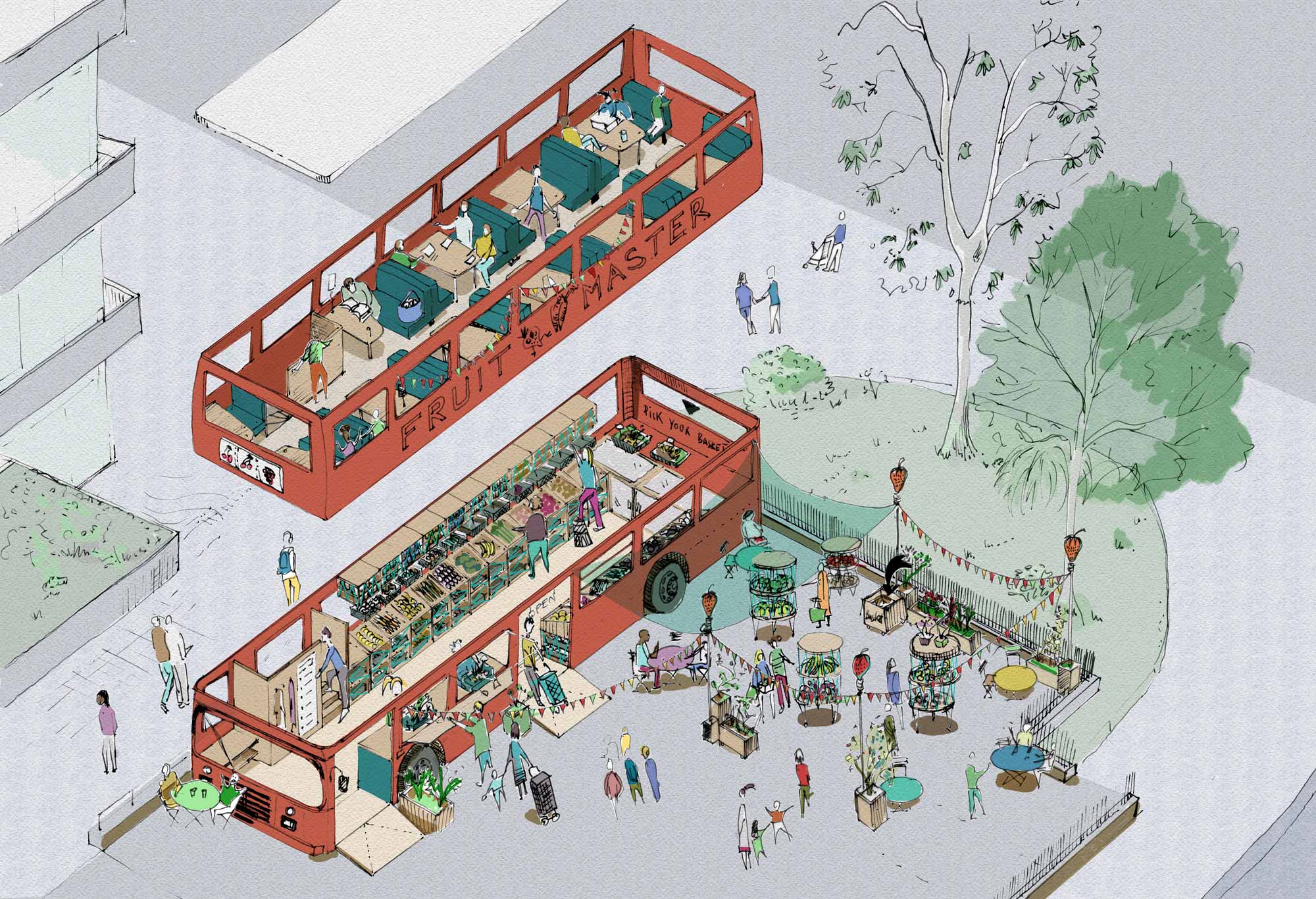
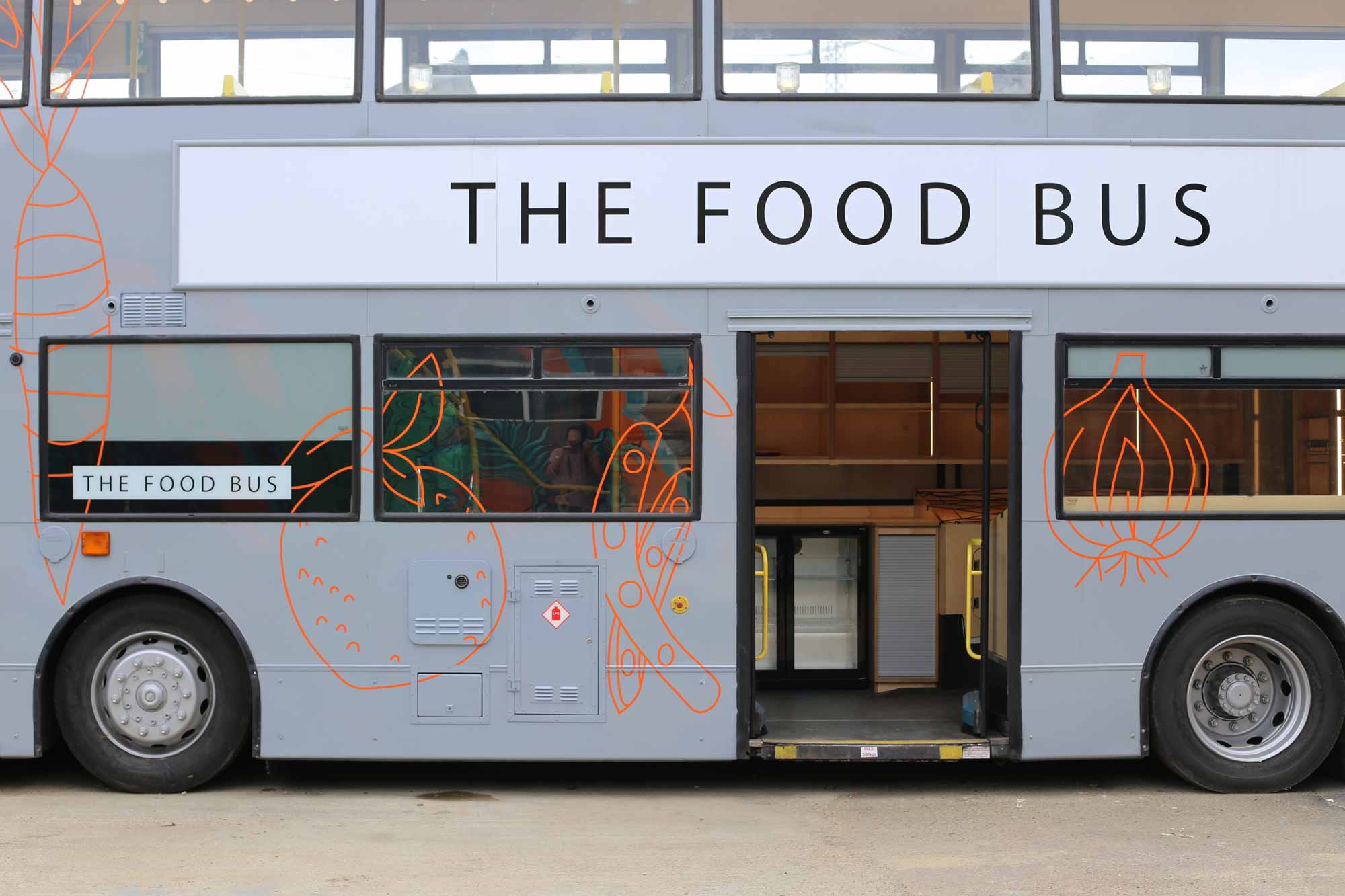
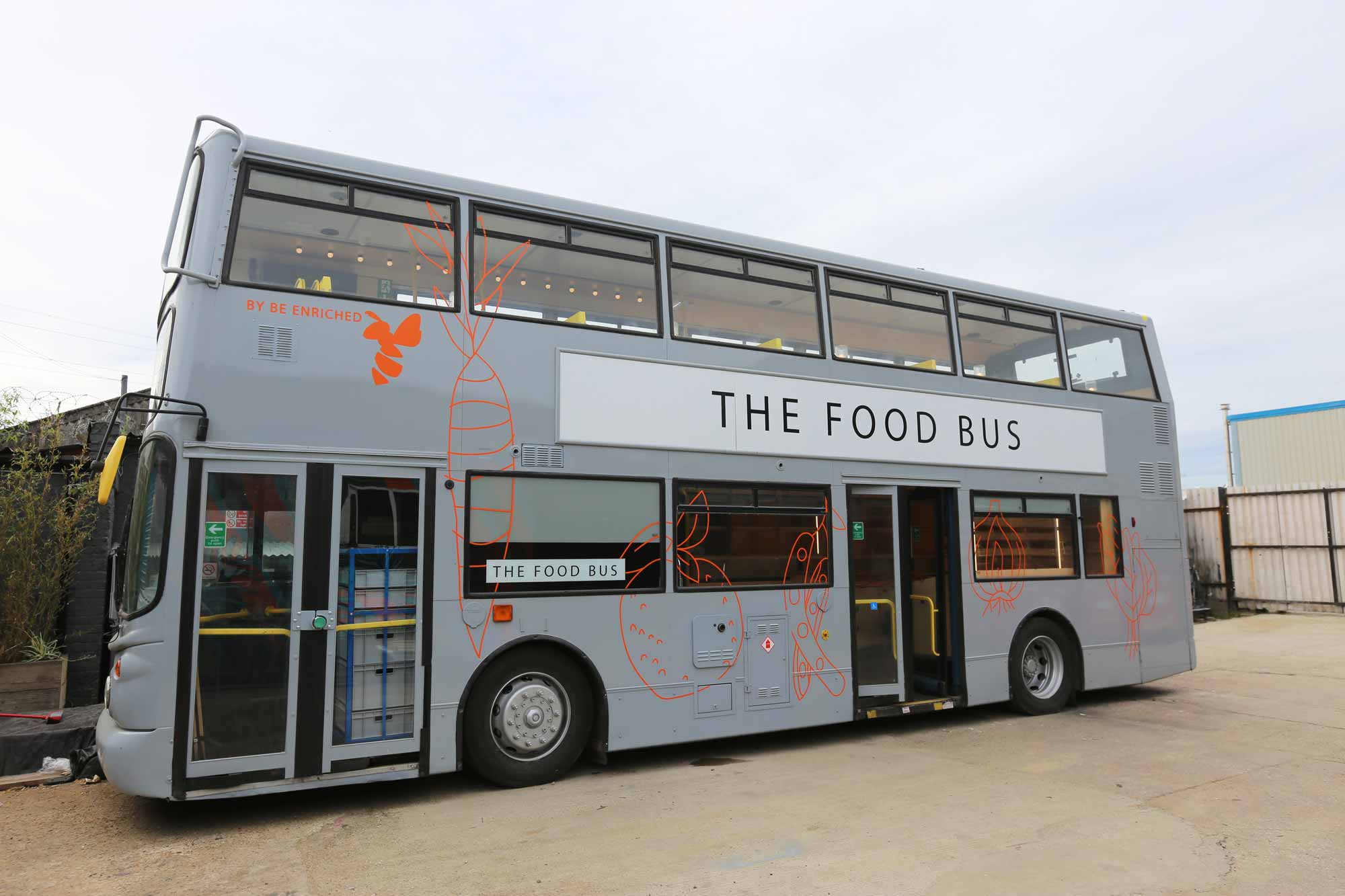
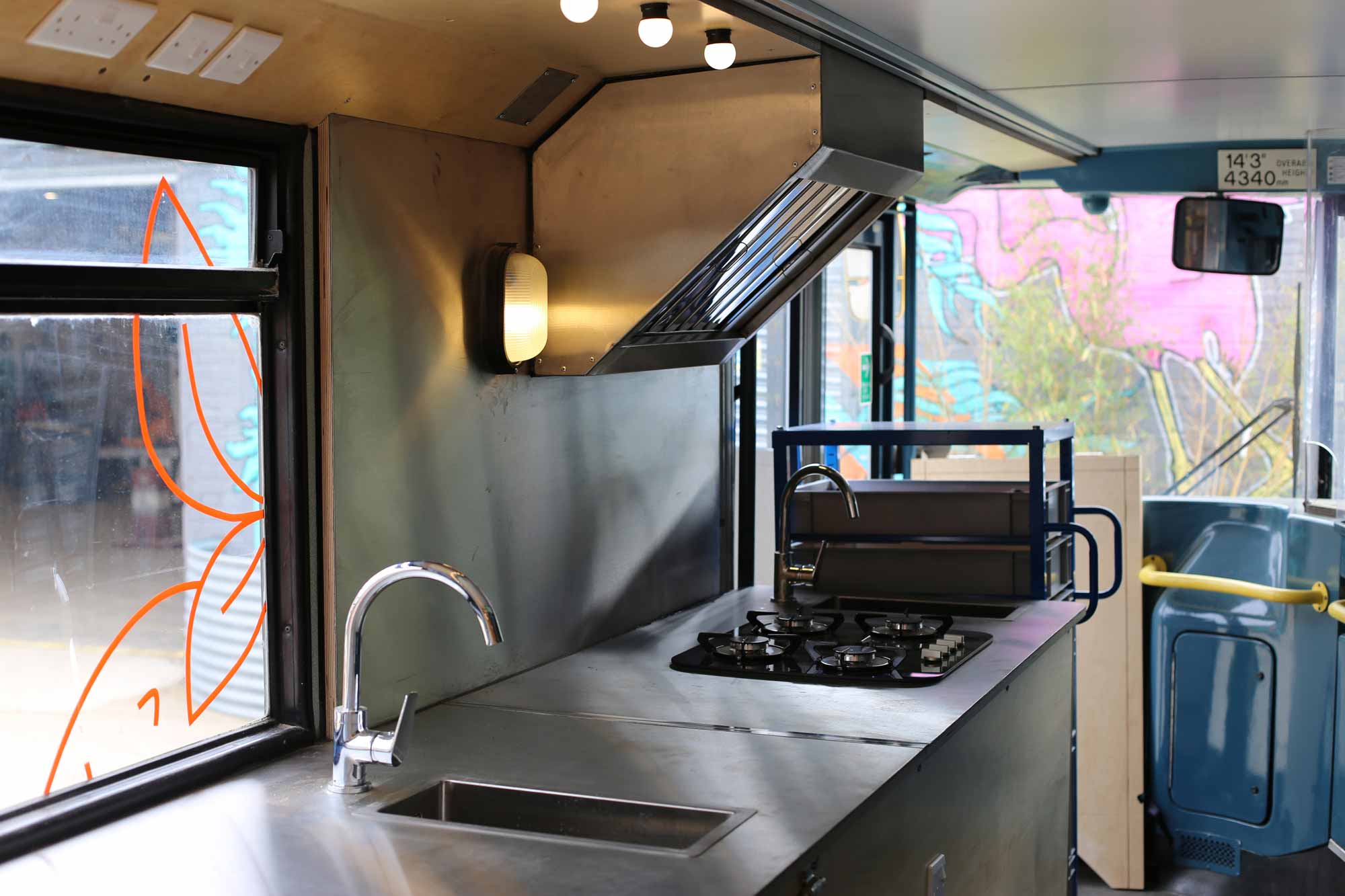
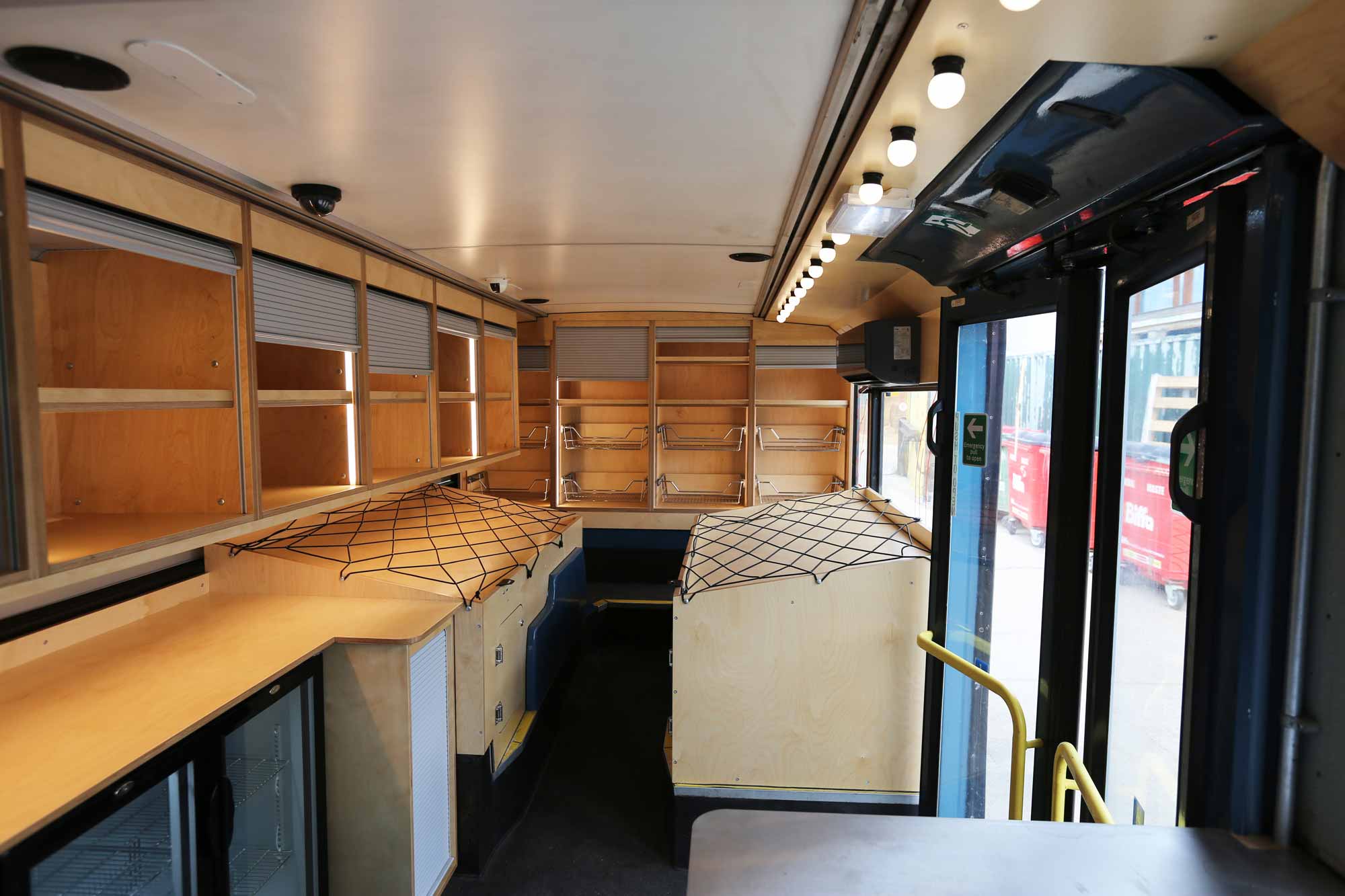
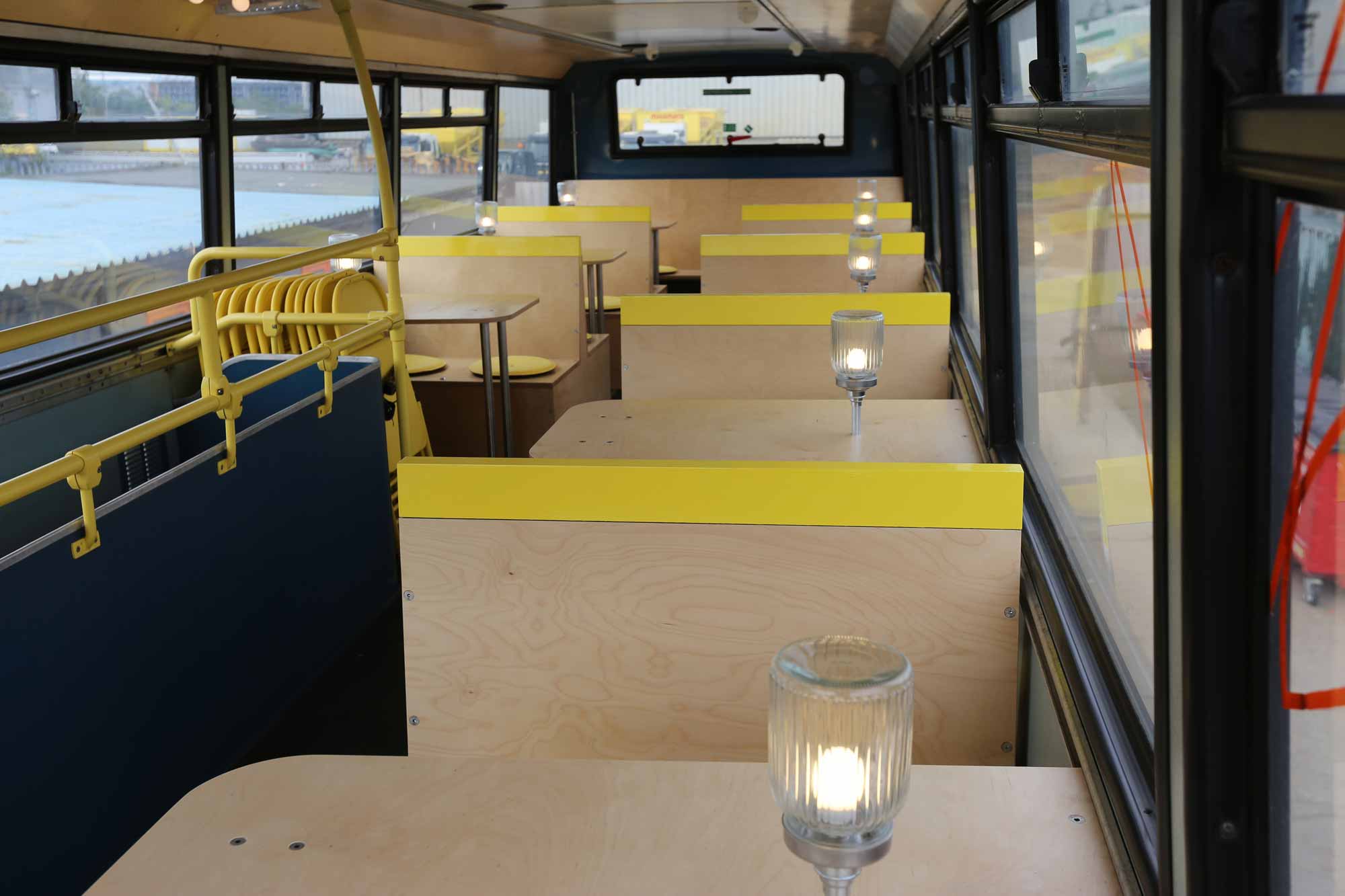
A converted double decker bus is bringing affordable, fresh food to chronically underserved areas. Amidst an abundance of food shops it’s easy to forget that good food is not accessible to many low income families in London. The bus transforms the increasingly common concern of bringing food to the table into a convivial experience.
With food bank use in the UK expected to rise by more than 60% (Trussel Trust) as a result of the pandemic, the Wandsworth Food Bus project conceived with Feeding Britain and Be_Enriched presents an innovative approach to tackling food poverty. The on-board shop, cafe and workshop space are designed to improve access to healthy food, provide learning and support and cultivate companionship amongst neighbours.
A regular shopping basket of goods will be available to buy at a fraction of its usual cost, with much of the food being sourced responsibly from retailers’ surplus stocks. The bus has running hot and cold water, a fully functioning kitchen, food storage and display cabinets, air source heating and cooling and solar powered refrigeration, lighting and 5G internet. The upper deck was converted into a comfortable lounge with tables and seating for residents to access additional support services and training events. Additional outside seating and a warm and welcoming environment with carefully controlled lighting was designed to create a sequence of welcoming internal and external spaces.
The Food Bus is a blueprint for a new and innovative way of bringing help right to the doorstep of some of the most vulnerable individuals and families. We hope that the project will transform the experience of accessing support into a civic event with positive and convivial overtones.
The project was funded by the Mayor of London and the London Economic Action Partnership (LEAP) through the Good Growth Fund, DWS, Esmee Fairbairn Foundation, Sarah Dent, Peace Train, Wandsworth Council, L&Q, and Mercers’ Charitable Foundation.
I am an architect and lecturer and live and work in London. In 2004 I set-up Jan Kattein Architects with a mission to advocate socially-engaged working methods in architectural practice. I see design as an opportunity for dialogue and exchange. Pro-actively building relationships helps the studio to shape projects that make a civic contribution, supporting economic, cultural, educational and social prosperity. Projects like the High Road Leyton regeneration programme, the King’s Cross Skip Garden and Blue House Yard are leaving a social and a physical legacy.
Our work has won a range of national and international design awards and is helping to redefine how social and environmental policy is implemented. Our ideas are the result of a multi-disciplinary set of skills including ecology, economics, education, urbanism, architecture and design.
I am a lecturer in architecture and engagement at the Bartlett, UCL and teach and publish internationally. My research investigates architectural practice to establish how different parameters and social constellations impact on design process. My book, The Architecture Chronicle, Diary of an Architectural Practice is published by Routledge.
For many architects practice is about creating physical spaces. For me, the social consequence of practice is just as important as the physical manifestation of it. This means that we need to be flexible and adaptive to the context in which we work and embrace an inclusive design process that grants others authorship. Working this way requires incredible optimism and trust and an open mind about what constitutes architecture.
Rem Koolhaas, Delirious New York (1978)
Emir Kusturica, Black Cat, White Cat (1998)
Samuel Mockbee, Rural Studio



































































